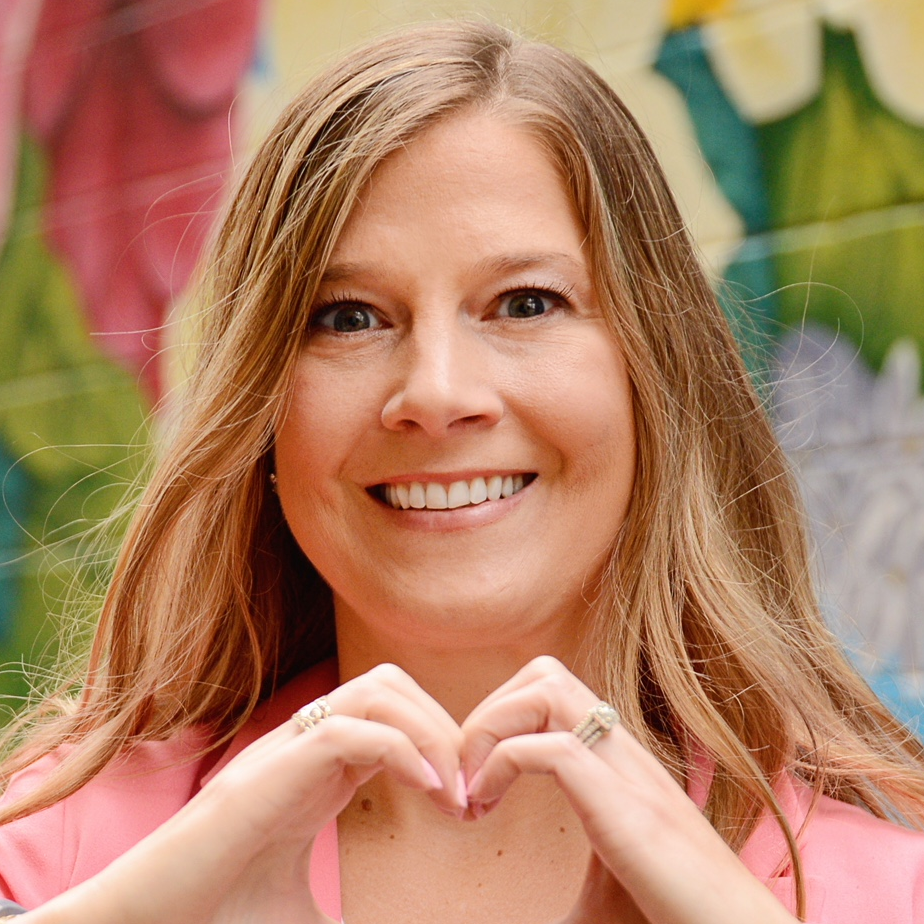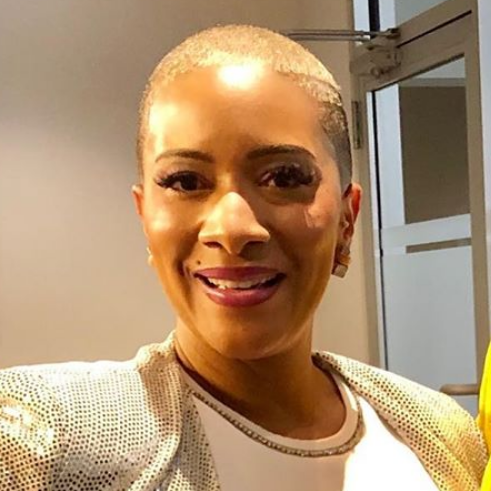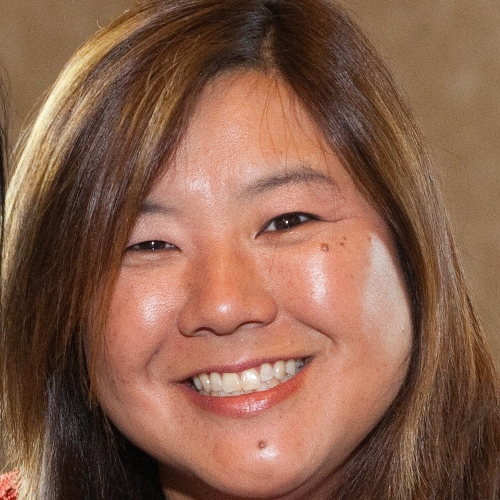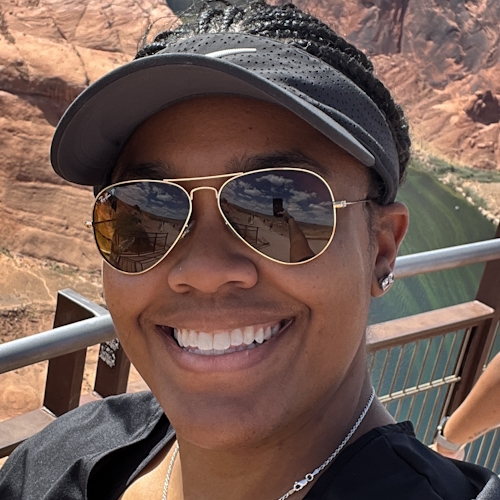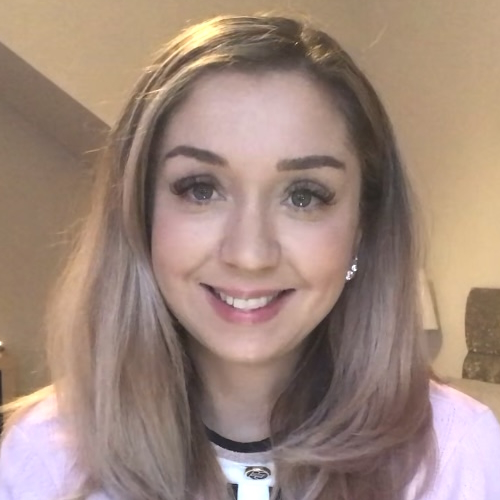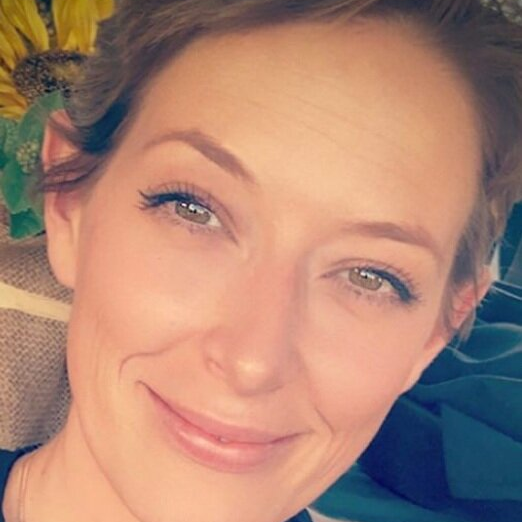Fiorella’s Role in Cancer Advocacy Started After Her Own Breast Cancer Diagnosis
Fiorella proudly champions cancer advocacy for patients in her country, Argentina. She was once a patient herself. In 2019, she discovered a lump in her breast during a routine self-exam. Trusting her instincts, she consulted doctors, leading to a biopsy that confirmed her diagnosis of triple positive stage 2 breast cancer. The diagnosis was shocking, but she leaned on her family and found solace and strength in their love and support.
Fiorella proactively sought a second opinion from a doctor at the Alexander Fleming Institute. In contrast with other doctors who recommended that she first have a mastectomy and then chemotherapy, the doctor recommended that she start with chemotherapy to shrink her tumor, sparing her from a mastectomy. It was sound advice. After just two chemotherapy sessions, the tumor vanished, and she underwent a lumpectomy.
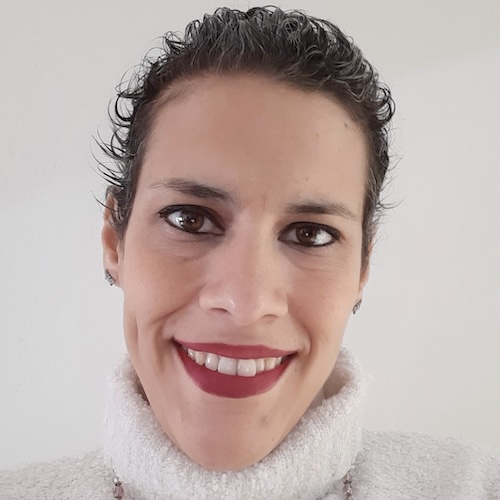
Empowered by her stage 2 breast cancer experience, Fiorella emphasizes the importance of self-advocacy and informed decision-making. She believes that patients should take the initiative to research their conditions, seek second opinions, and participate in discussions about their treatment options.
Fiorella’s experience made her realize that there was a gap in patient support. She first helped out and then took the lead at VICARE GU, Argentina’s first genitourinary cancer advocacy association that focuses on kidney cancer and bladder cancer, prostate cancer, testicular cancer, and penile cancer. VICARE GU offers resources, legal support, and assistance, and also organizes community events to help patients and families get to know their conditions better and navigate their diagnoses with dignity.
Fiorella’s passionate about shattering the stigma around cancer and supporting others through shared experiences. Read her story and watch her video to learn about:
- How her self-exam changed her life
- The second opinion that redefined Fiorella’s treatment plan
- Overcoming fear and stigma after a stage 2 breast cancer diagnosis
- From patient to cancer advocate: Fiorella’s mission in Argentina
- The role of family support in navigating cancer and living with dignity
- Name:
- Fiorella G.
- Diagnosis:
- Breast Cancer (Triple Positive)
- Staging:
- Stage 2
- Symptom:
- Lump in breast
- Treatments:
- Chemotherapy
- Surgery: lumpectomy
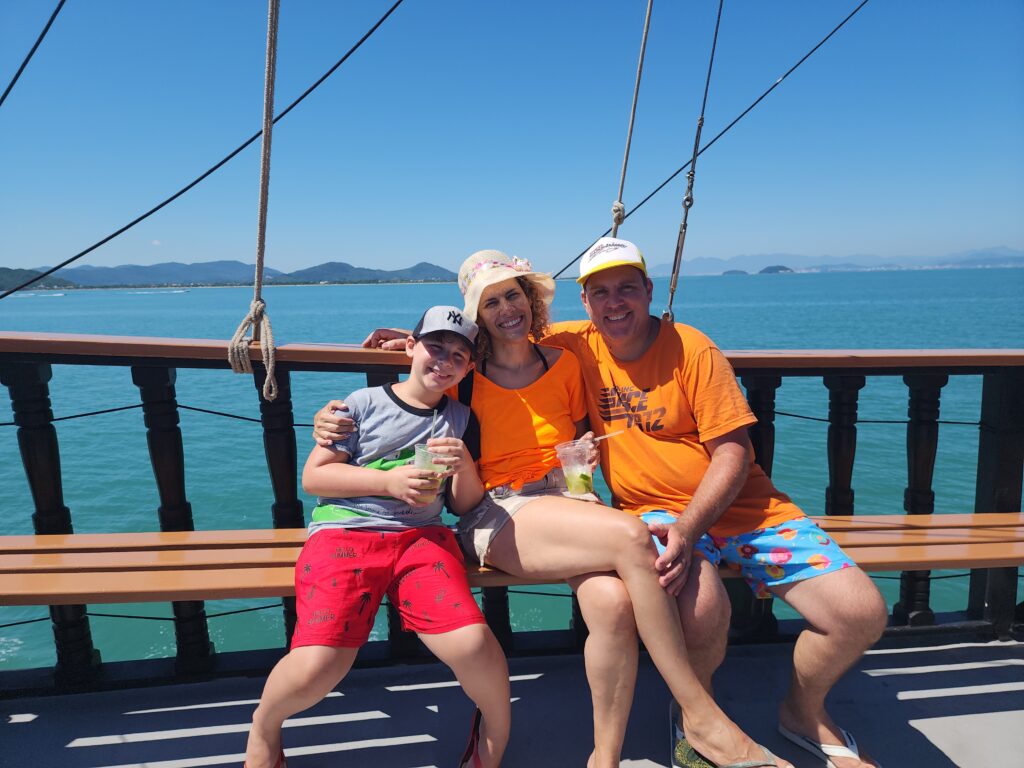
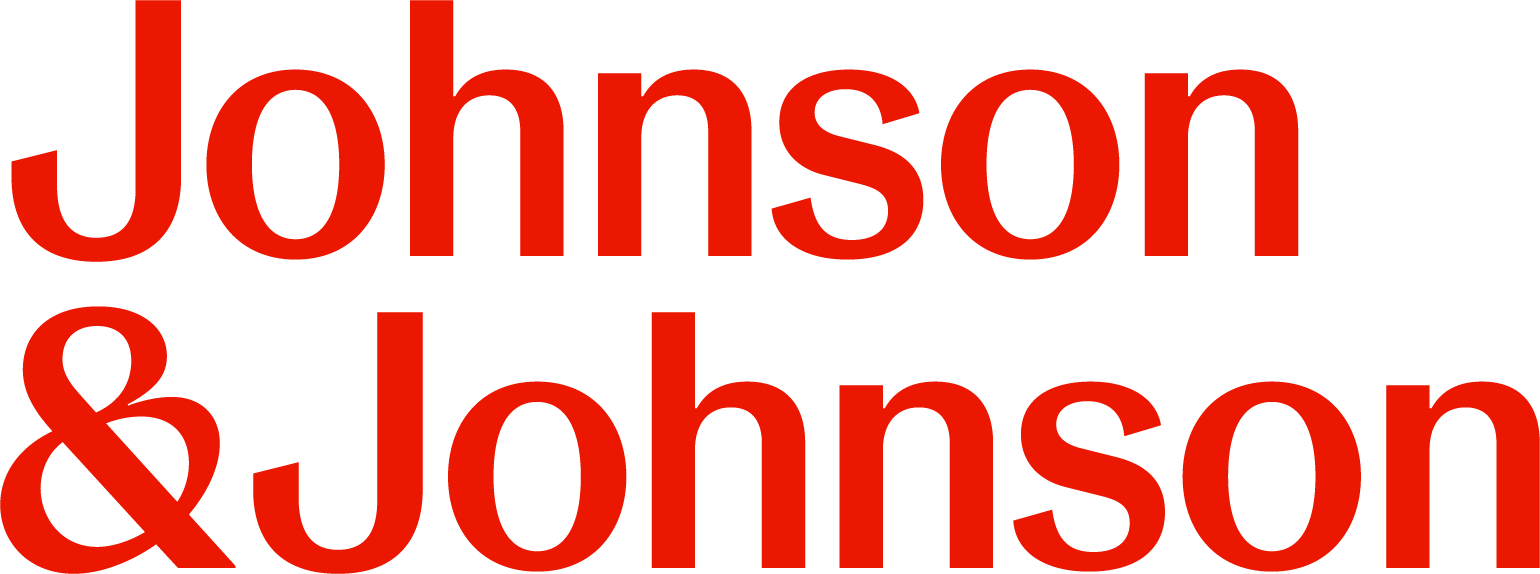
Thank you to Johnson & Johnson for supporting our patient education program. The Patient Story retains full editorial control over all content.
This interview has been edited for clarity and length. This is not medical advice. Please consult with your healthcare provider for treatment decisions.
- About Me
- How I Found Out I Had Stage 2 Breast Cancer
- Telling My Friends and Family About My Diagnosis
- I Looked for a Second Opinion
- I Believe in Empowered Care
- Getting Involved in Cancer Advocacy in Argentina
- “Cancer” is Such a Dreaded Word
- My Message For Other Cancer Patients in Latin America
- How Spreading Cancer Advocacy Through VICARE GU Can Help People
Interviewed by: Stephanie Chuang
Edited by: Chris Sanchez
… I [need to] give back, to help others gain a second chance at life.
About Me
Hello, I’m Fiorella. I’m from Argentina. I was diagnosed with triple positive stage 2 breast cancer in 2019.
I’m very passionate about everything I do. I never give up on anything. When I do something, I try and try again, until I get it perfect.
I’m quite passionate about my family as well. I’m married and I have a son. Family for me is one of the most important things in my life. I think of my family in everything I do.
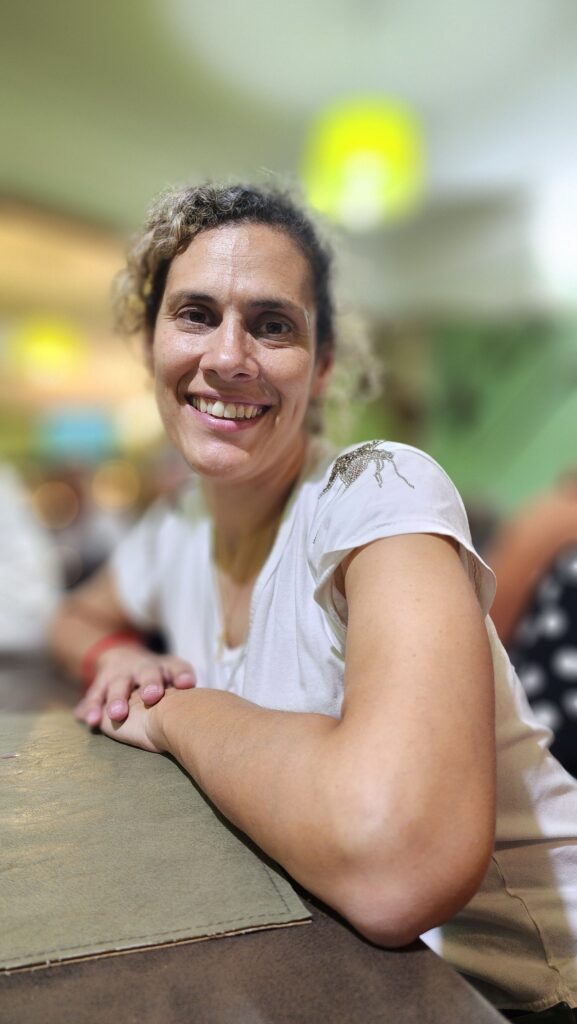
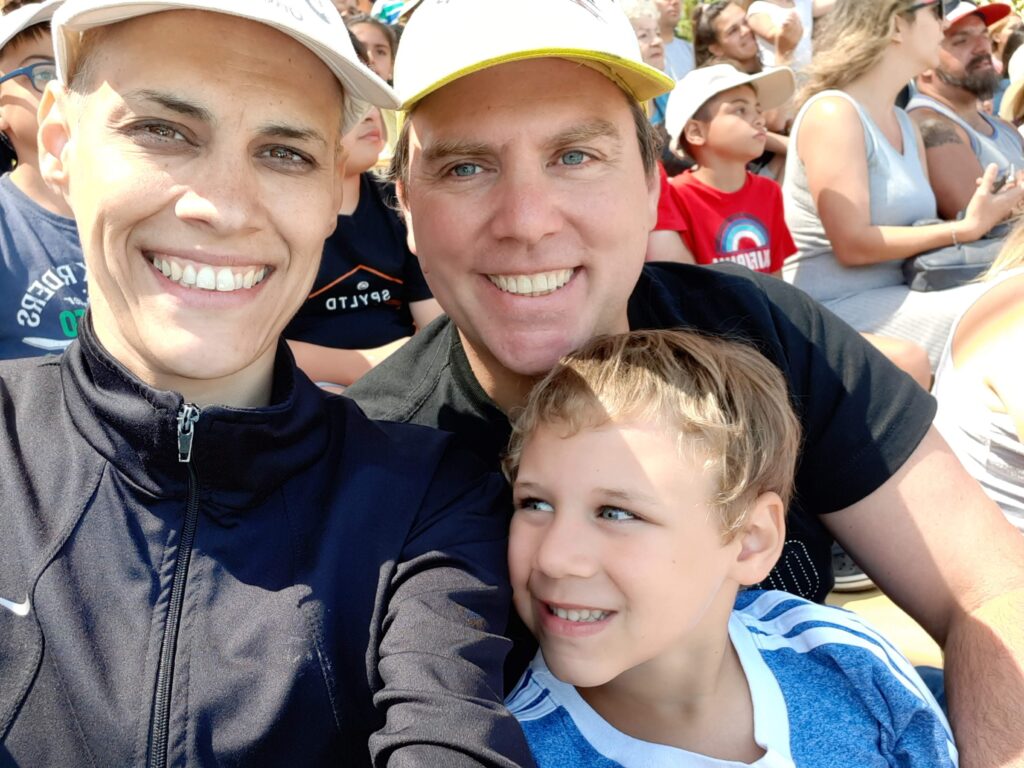
How I Found Out I Had Stage 2 Breast Cancer
I don’t remember all that much from the time I was diagnosed. I clearly recall, though, that I was quite frightened to have discovered my cancer.
I was working then, and my son was five years old at the time. One day, I did a breast self-examination like I always do. I found what felt like a little ball in my breast. It was alarming.
I went to see my gynecologist. He palpated me and told me it felt suspicious. He then referred me to a breast surgeon, who said the same thing. And then he sent me to have a biopsy done, which uncovered my triple positive stage 2 breast cancer.
I don’t remember all that much from the time I was diagnosed. I clearly recall, though, that I was quite frightened to have discovered my cancer.
Telling My Friends and Family About My Diagnosis
The phrase “stage 2 breast cancer” was very new for me and my family. It wasn’t something we had encountered before. That made my diagnosis and subsequent treatment very difficult for everyone. I also ended up losing my job later on, in the middle of the treatment, which made things even tougher.
But my family — my mother and father, my husband and son — had my back. They rallied around me. Even though my son was little then, he was always with me. And my close friends supported me, too.
I also had plenty of support from my doctors and medical team — the oncologist and hematologist, of course, but I had also begun to see a psycho-oncologist to provide emotional support to counter the difficulties I was starting to experience due to my breast cancer.
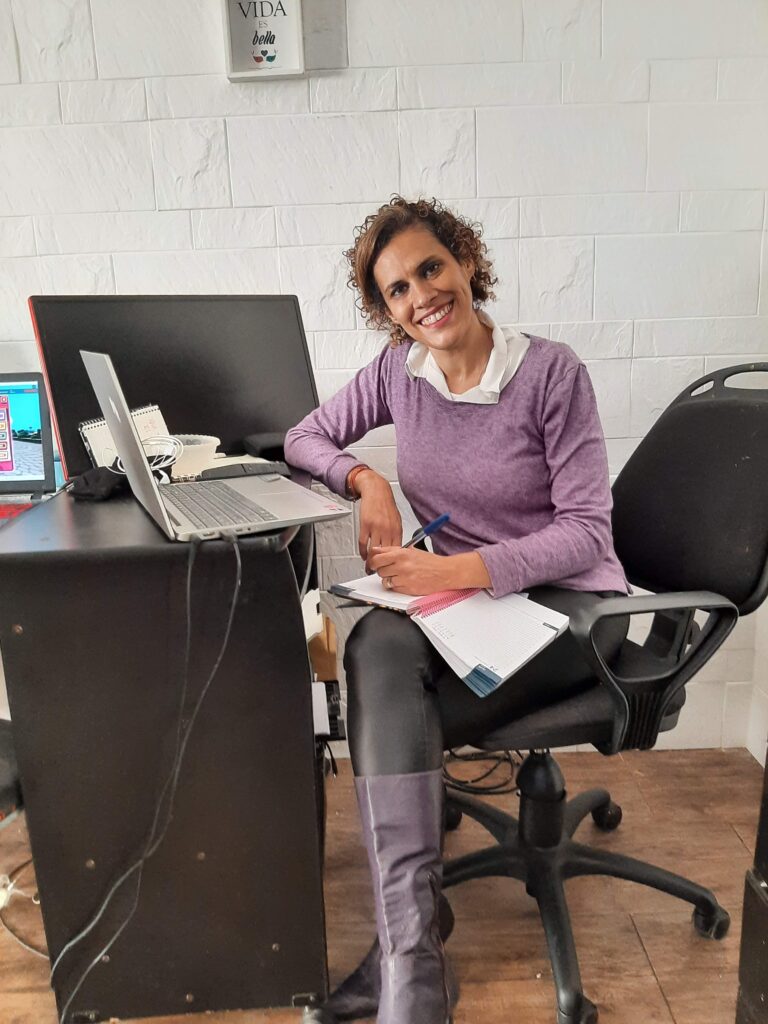
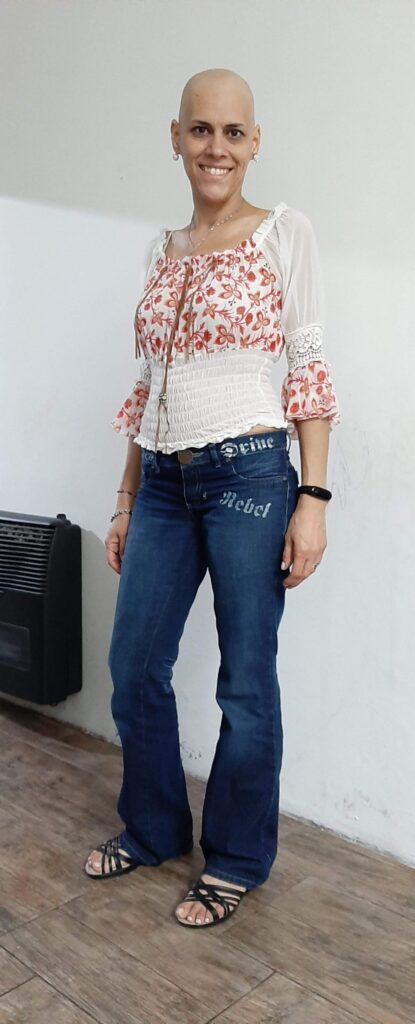
I Looked for a Second Opinion
As I said, stage 2 breast cancer was new to me. No one close to me had cancer or anything like that. I had to find out more about it before I committed to my treatments. I couldn’t stick with the first thing they told me back then.
One of my cousins told me, “Why don’t you look at this doctor?” And then they recommended this place called the Alexander Fleming Institute, right here in Argentina. It’s dedicated solely to cancer. Other places, even though they’ve got oncologists or other doctors on staff, might not be as focused. So I said, “Well, this has to be the place.”
I wasn’t given a set path. I had spoken with other surgeons who had said that they would need to operate first and then start chemotherapy. But the doctor I spoke with told me differently.
He said that the tumor was very large, but I was very young — and I didn’t need to have the whole breast removed. He added that it would be better to start with chemo and reduce the size of the tumor, and then operate later.
And this regimen worked. After the second session of chemotherapy, the tumor disappeared. After that, I just needed a breast-conserving surgery, a lumpectomy, to remove any tumor remnants.
I Believe in Empowered Care
“Listen to what the doctor says and do what he tells you.” I’m not very much into doing that blindly.
In all areas of my life, I prefer to find things out and get educated before deciding on something. I guess most people don’t find these things out or ask about them.
I only managed to find out about patients’ associations and patients’ rights after all my treatments were done. They don’t seem to be well-known. I kept discovering a lot of things like this afterwards.
Of course, if a treatment has to be done, it needs to be done just as the doctor says. But I would recommend speaking with others and doing a little more research before making any treatment decision.
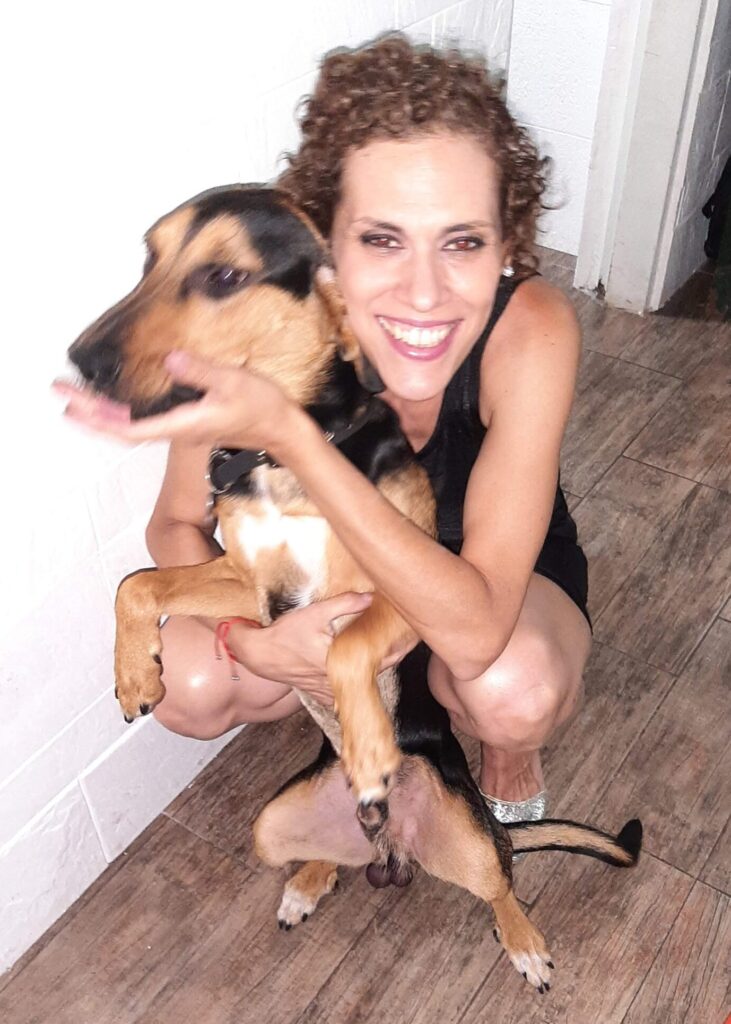
… I would recommend speaking with others and doing a little more research before making any treatment decision.
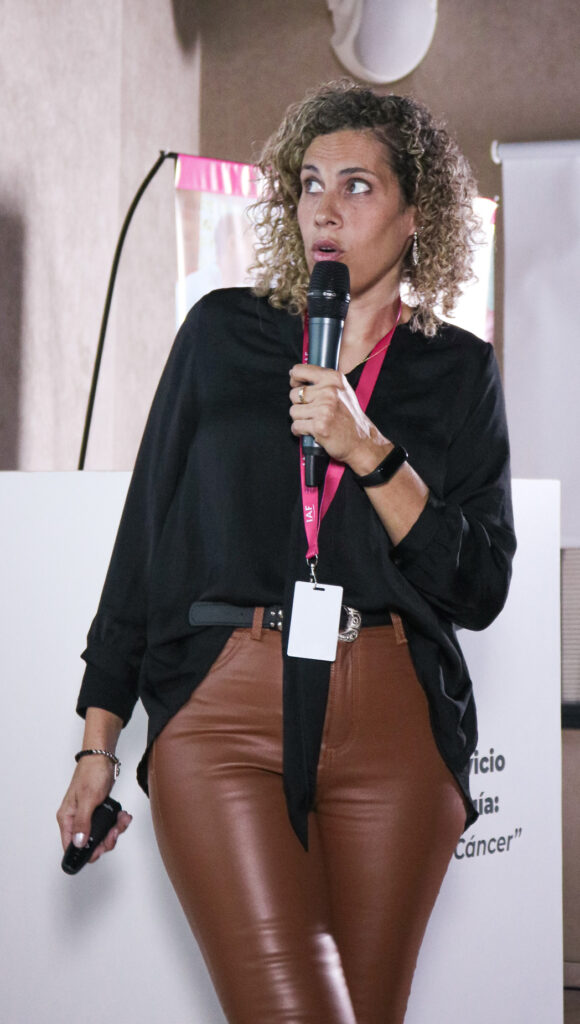
Getting Involved in Cancer Advocacy in Argentina
I’m working to help patients in Argentina as part of a realization I had when I was finishing up with the treatment, and even after I was done. I felt I needed to give back, to help others gain a second chance at life.
I took my stage 2 breast cancer experience forward by getting involved in VICARE GU, which is the first association in Argentina for genitourinary cancer patients and their family members and friends.
Initially, I was just helping the president of VICARE GU out. But she passed away, and no one could follow in her footsteps. So I got more involved. I’m now the president.
At VICARE GU, I’ve learned so much about patients and, in general, about dedicating oneself to patients’ concerns. And connected with how I felt, that I needed to support patients getting a second chance at life, is that we provide crucial information that cancer patients, their family members, and their friends can easily access and browse.
We started with kidney cancer, then went into the bladder cancer space next, and then genitourinary cancer. And we’ve also added information on other kinds of cancer: kidney, bladder, prostate, penile, testicular, and urethral cancer.
We’ve started organizing congresses — medical meetings or conferences — for each of the cancers, and specifically aimed at patients. We started with kidney and bladder cancer, and this year, in 2025, we’ve begun to organize congresses for the other kinds of cancers. These congresses provide what patients need to understand and keep up to date about treatments for each of the cancers and learn about cancer advocacy.
We run a psychologist-managed WhatsApp group where patients can join different chats and discussions. We also participate in different international organizations, such as the International Kidney Cancer Coalition.
On the legal side, we help patients in case some kind of treatment isn’t covered. We also help patients access medication. And we also organize other activities like community talks and walks — we do two of these yearly — and mindfulness activities as well.
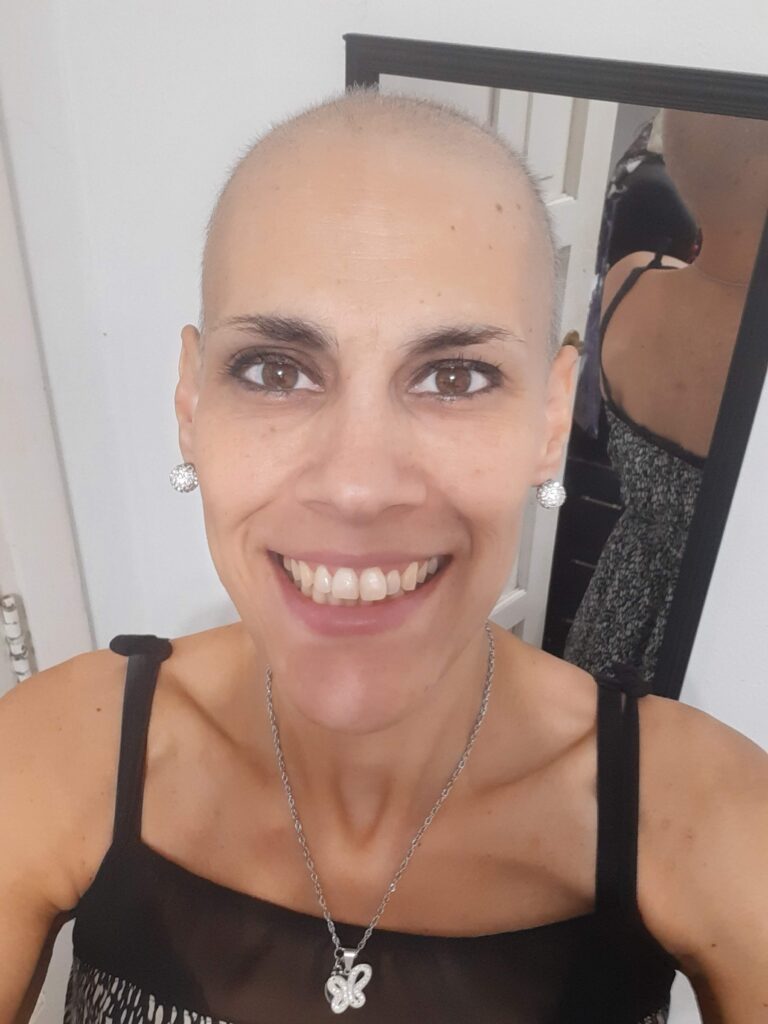
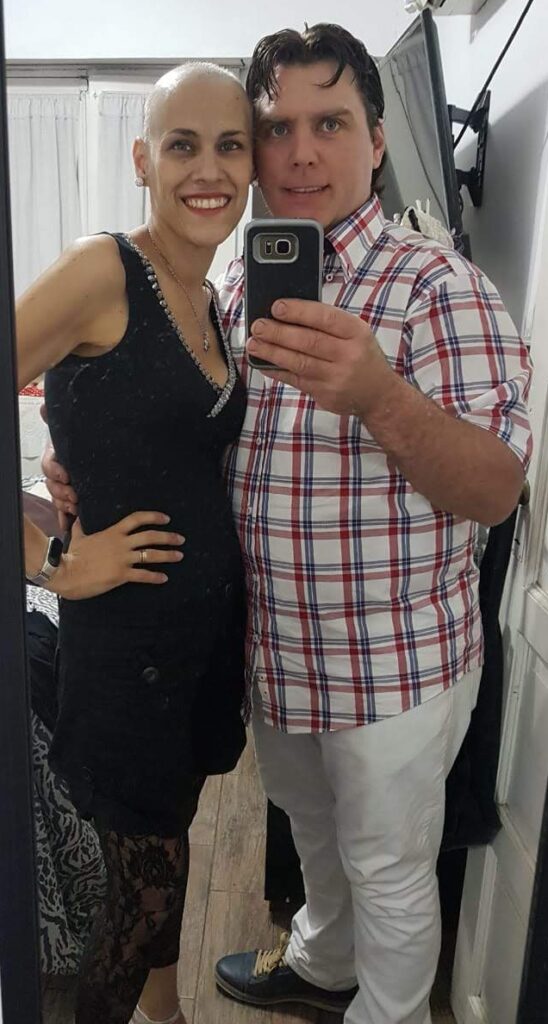
“Cancer” is Such a Dreaded Word
There’s still so much fear of cancer. The term really does carry some stigma. People might find it uncomfortable to know that someone has cancer.
Many patients and their family members participate in the online events or talks we organize. But when we put up an in-person event, not as many people come. It does take a bit more for people to show up in person, but people may also be a little ashamed to come.
When we speak of empathy and find that this can be missing, it’s because cancer really is stigmatized. Some people can’t even say its name, and when I invite them to events or even just say you’re helping cancer patients, they more or less give me their condolences.
I do understand this fear. I was also quite frightened in the early part of my stage 2 breast cancer experience. I equated cancer with death because I was scared of what I didn’t know.
But now that I’ve been through my experience, I know so much more about it, such as the fact that cancer isn’t necessarily a death sentence; some kinds can be managed.
Men can have a particularly hard time with cancer, even just the idea of it. They don’t like to speak up and find it hard to see a doctor for check-ups. More than anything, for them, it’s the prostate.
There’s still so much fear of cancer. The term really does carry some stigma.
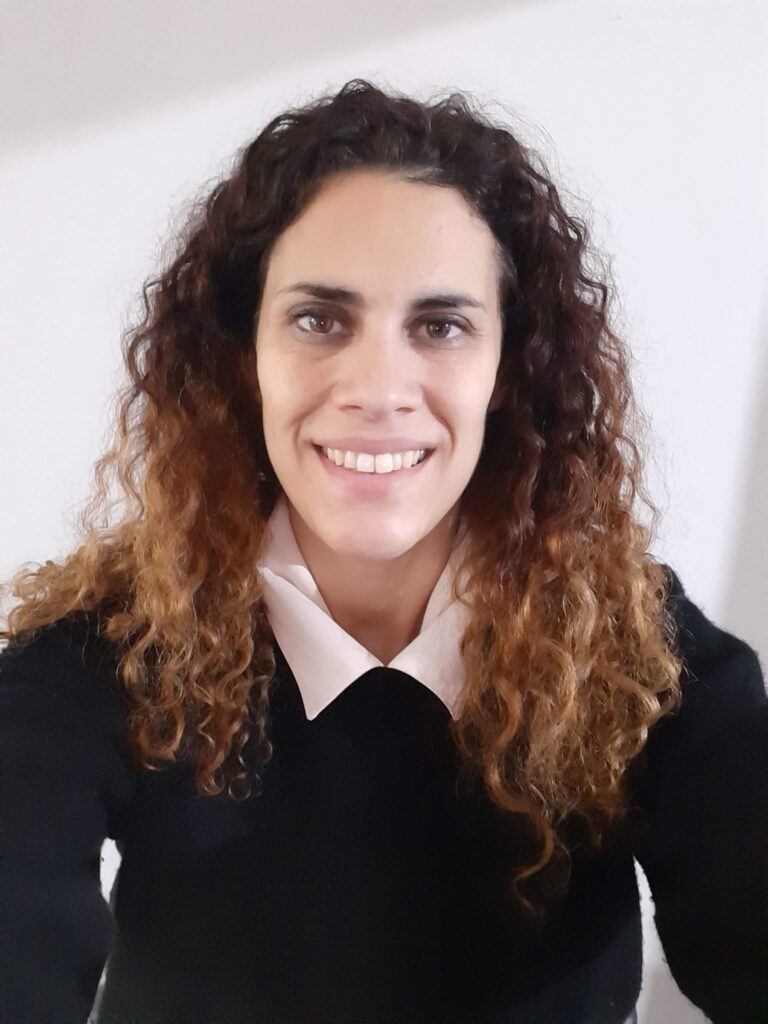
My Message For Other Cancer Patients in Latin America
Those of us who’ve suffered from cancer should talk about what we went through, because experience is what counts. It’s best to share what they learned with others.
It happened to me when I had stage 2 breast cancer, and I got past it. And here I am, getting on with my life and working in cancer advocacy. It seems to me that the important thing for those who’ve had cancer, as well as those who currently have it, is to talk about it and share their experiences.
Doing so can help those who might be struggling with it, especially those who are so scared that they can’t see their way through and who could really use a little guidance and support.
I would like other patients to participate in the patients’ associations. These associations can provide powerful support that families and friends might not be able to. This is a different sort of support than oncologists and doctors can provide.
Of course, oncologists have a key role to play. They’re the only ones who might understand and with whom we have to work to make cancer better known and to make the stigma surrounding it disappear.
How Spreading Cancer Advocacy Through VICARE GU Can Help People
The most important thing VICARE GU can provide is to capture the knowledge of cancer patients and provide a resource for them and others like them. Not only for patients, but also for their family members and friends.
Speech shares information, and information is knowledge. And knowledge can decrease over time. This can lead to ignorance and fear — fear that supports the stigma of the word “cancer” for the rest of society.
VICARE GU is available to help both patients with whatever they need, to be able to live better with cancer. And it’s also free of charge for patient organizations to participate in as well.
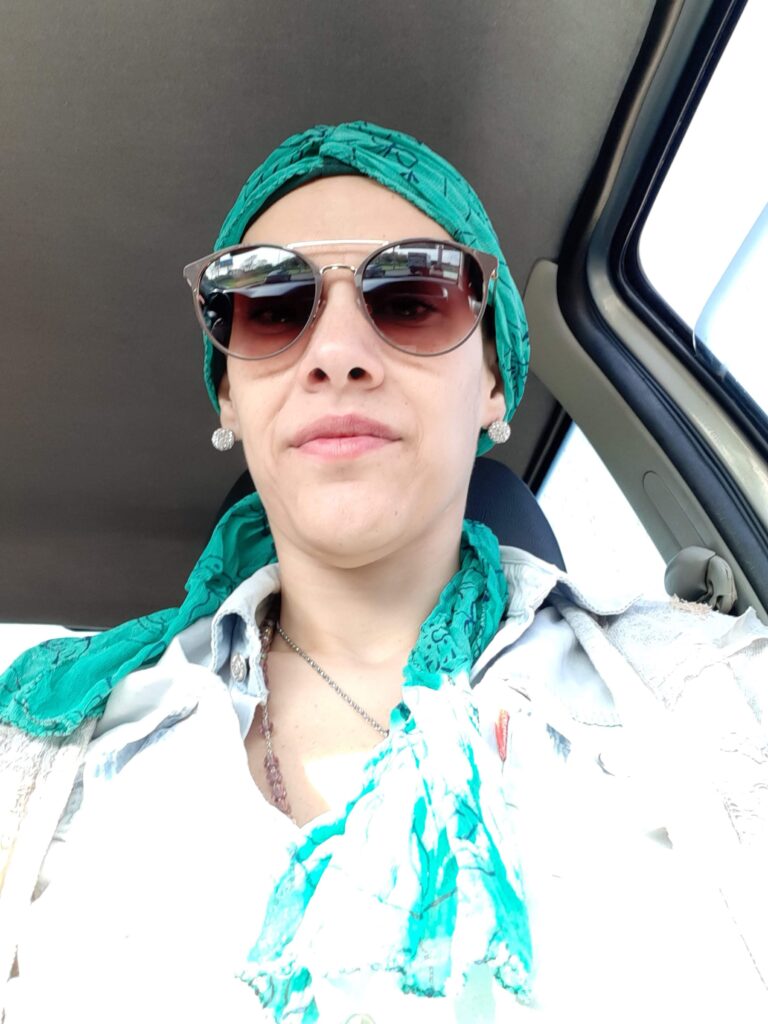
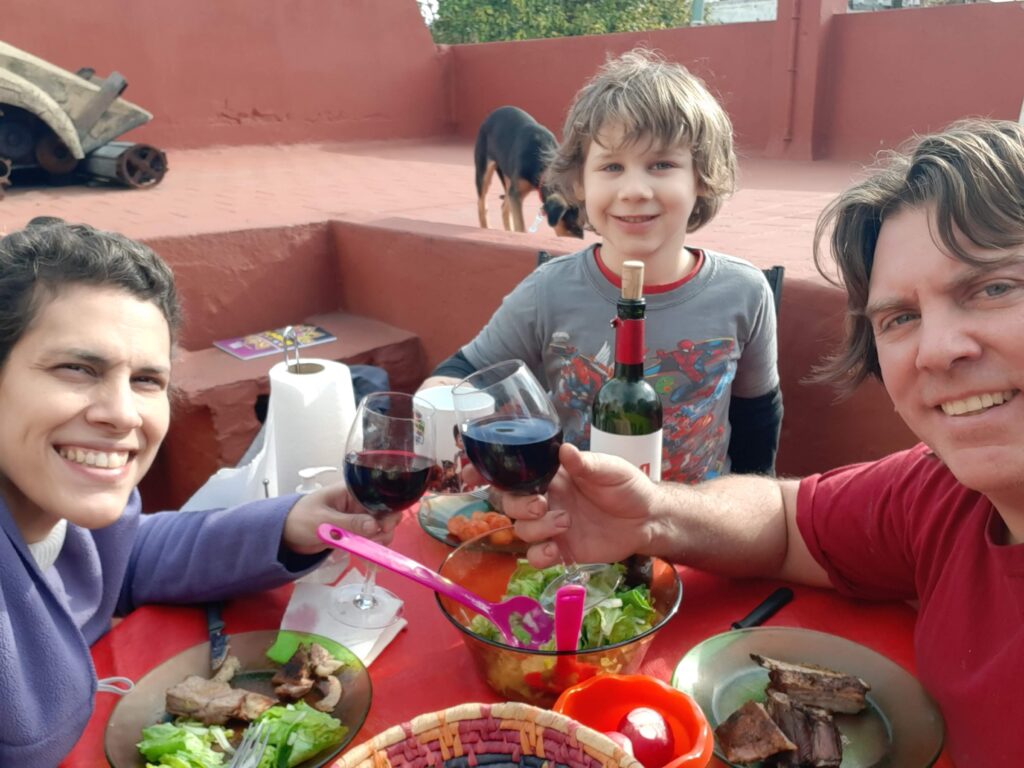

Special thanks again to Johnson & Johnson for supporting our patient education program. The Patient Story retains full editorial control over all content.

Inspired by Fiorella's story?
Share your story, too!
More Breast Cancer Stories
Symptom: Sunken in nipple of right breast
Treatments: Double mastectomy, chemotherapy (AC-T), radiation, hormone therapy (tamoxifen, Zoladex)
Symptom: Lump in right breast
Treatments: Lumpectomy, double subcutaneous mastectomy, hormone therapy (tamoxifen)
Margaret A., IDC & DCIS, Stage 2B
Symptoms: Pain in left breast, left nipple inverting
Treatments: Double mastectomy, chemotherapy (AC-T), radiation
LaShae R., IDC & DCIS, Stage 2B, ER+
Symptoms: Lump in breast, pain
Treatments: Chemotherapy (Taxotere and cyclophosphamide), proton radiation
Dee D., Metastatic Breast Cancer, IDC & DCIS, ER+
Symptoms: Inability to produce milk on the left breast while breastfeeding, breast pain (palpable and radiating to the back), lumps in the breast and armpit
Treatments: Chemotherapy (AC-T), surgery (bilateral mastectomy & axillary lymph node clearance), radiotherapy, hormone therapy (Zoladex/goserelin), aromatase inhibitor (letrozole), targeted therapy (Kisqali/ribociclib)
Cat L., IDC & DCIS, Stage 2B, ER+
Symptom: Pain in left breast radiating from lump
Treatments: Bilateral mastectomy, chemotherapy, hormone therapy (tamoxifen)
